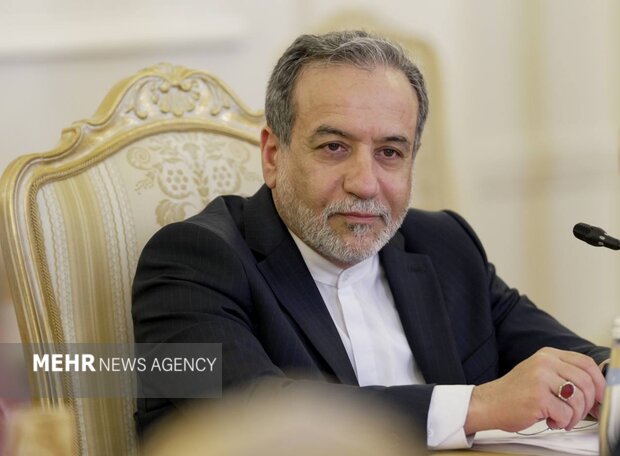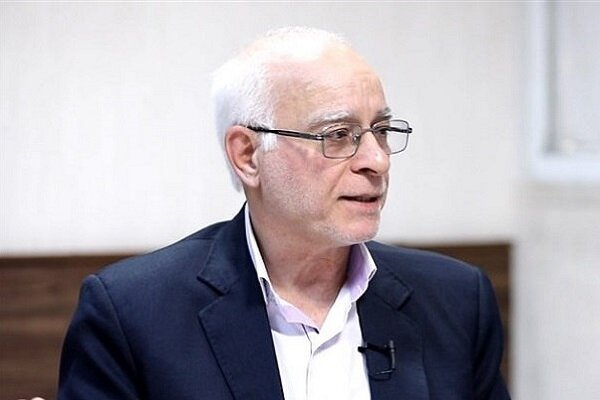Israel is attempting to divert the path of negotiations by creating a negative atmosphere through a series of media, political, and security measures; an effort that has been accompanied by Iran's response and growing rifts between Israel and the United States.
According to Ashura News, citing Mehr News Agency, while indirect negotiations between Iran and the United States are underway once again, the Zionist regime is trying to disrupt the diplomatic process with a behavior mixed with strategic anxiety and the illusion of dictatorship. In the meantime, the decisive response of Seyyed Abbas Araqchi, a senior Iranian diplomat, carried a clear message: Iran will not make decisions under pressure from any foreign actor.
The Zionist regime’s recent behavior towards the Iran-US negotiations goes beyond purely political or security positions. This behavior is a symbol of a strategic and deep-rooted concern; a concern about restoring Iran’s position in regional and international equations and reshaping Tehran-Washington interaction, even in a limited and indirect format.
For Tel Aviv, the main threat is not Iran’s nuclear program, but Iran’s return to dialogue from a position of power. The Israeli regime, which has defined its security over the past decades on the basis of hostility and Iranophobia, now clearly feels that the playing field is changing. That is why, by using tools such as lobbying in the United States, media atmosphere creation, and dramatic military threats, it is trying to make the path of negotiation appear costly and uncertain.
Meanwhile, the Prime Minister of the Zionist regime has gone further and is openly trying to dictate even to the President of the United States what he can and cannot accept in his foreign policy. This level of interference has been considered, even for many Western analysts, a kind of violation of diplomatic custom.
Diplomacy without the need for compromise
However, Iran’s response to these atmosphere creations is a clear, reasoned response, and one that stems from national self-confidence. Foreign Minister Seyyed Abbas Araqchi emphasized in a clear statement: “Israel’s fantasy that it can dictate to Iran what it can or cannot do is so far from reality that it is not worth responding to.”
Referring to Tel Aviv’s efforts to influence Washington, he said: “Netanyahu’s impudence is remarkable that he wants to dictate to the US president what he can or cannot do in his diplomacy with Iran.”
Araqchi also pointed to the distortions made by Zionist allies in the former Biden administration team, who are trying to interpret the recent negotiations biasedly as a return to the JCPOA. While the reality is fundamentally different from that.

He added: “Iran is strong enough and confident in its capabilities to thwart any attempt by malicious foreign actors to sabotage or dictate its foreign policy. We can only hope that our American counterparts are equally steadfast.”
More important is Araghchi’s realistic view of the Iranian people’s public will. According to him, many Iranians are no longer satisfied with a mere agreement on paper; they are seeking tangible benefits. This fact, even if it is not to the taste of some opponents of diplomacy, cannot be denied.
Finally, Araghchi issued a specific warning to Iran’s ill-wishers: “Not only is there no military option, but there is certainly no military solution. Any attack will be met with an immediate and similar response.”
Israel’s behavior reflects anxiety
Israel’s behavior at this critical juncture reflects anxiety that it is trying to hide by resorting to a show of force and political provocation. But what is clearer than ever today is that Iran, relying on national authority, determines the course of its foreign policy, not by threats or coaxing.
The hidden and open disagreement between Washington and Tel Aviv over diplomacy with Iran
Although the Zionist regime outwardly presents itself as a strategic ally of the United States, there have been deep and sometimes tense differences between Tel Aviv and Washington on the issue of Iran, especially on the nuclear issue. This difference became clearly evident during the Obama administration and the signing of the JCPOA, where Benjamin Netanyahu publicly stood up to the US government and spoke in the country's Congress against the agreement; an unprecedented event that was a sign of the strategic distance between the two sides.
Now, with the opening of a new window of indirect talks, the Zionist regime is once again trying to influence American policy, but there are signs that some political circles in Washington are tired of Tel Aviv’s unilateral and interventionist policies. There are also differences of opinion within the current US administration about how to deal with Iran, and some institutions have expressed regret over repeating the costly experience of withdrawing from the JCPOA.
On the other hand, Zionist officials, especially Netanyahu, are suspicious of any indirect talks, and this has created a further gap between the diplomacy-oriented approach in parts of Washington and the totalitarian and threat-oriented approach of Tel Aviv.
In fact, Israel fears that even a limited and step-by-step agreement could initiate a process that would change the geopolitical balance of the region in favor of Iran; A trend that may ultimately lead to a reduction in Israel's role in regional equations and a decrease in its credibility with its Western allies.
Although this gap may be less frequently mentioned at official levels, it is clearly visible in Western media analyses and political circles, and this difference could make the path of diplomacy with Iran more realistic in the future.
Israel was an enemy of any agreement between Iran and the United States from the beginning
In an interview with Mehr, Hassan Beheshtipour, referring to the Zionist regime's obstacles in the process of indirect negotiations between Iran and the United States, stated: The Zionist regime's disruption of issues related to Iran is not a new issue. The Israeli regime has been and is opposed to any kind of agreement between Iran and the United States from the beginning. Just as it was 100 percent opposed to the JCPOA and tried to cause the JCPOA to fail.
He continued: Currently, the Zionist regime is seeking conflict with Iran and wants to destroy Iran's nuclear facilities, which of course will never be achieved.

The international affairs expert stated: The second issue that this regime raises is the issue of war and explicitly declares that it is not subject to America and uses the term "satellites" for itself. While Netanyahu himself knows that he cannot attack Iran without American support. Israel is supported by America in all aspects in terms of weapons, logistics and security.
Stating that Netanyahu wants to continue his government through war, Beheshtipour clarified: Netanyahu knows very well that with the end of the war in Gaza and the establishment of peace, the court will begin to investigate the crimes and violations of Netanyahu and his government and he will be forced to step down.


Post a comment